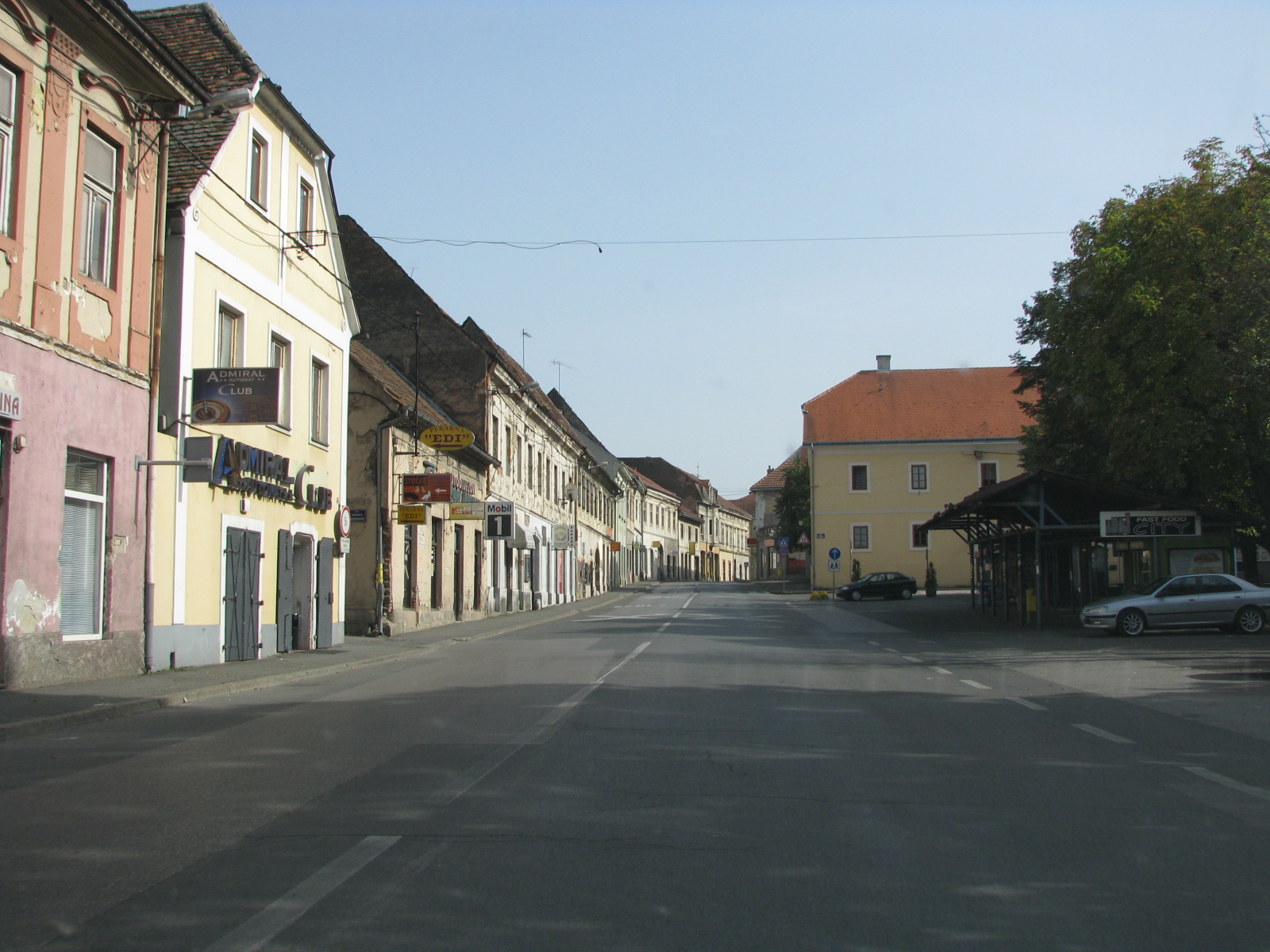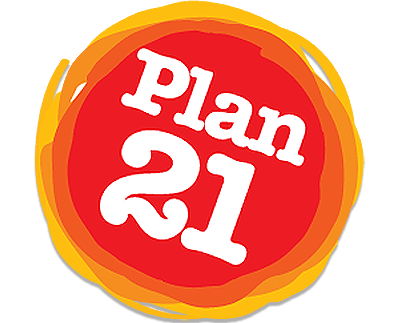|
Branka Bakšić Mitić
Branka Bakšić Mitić ( sr-Cyrl, Бранка Бакшић Митић; born in August 1961) is a Croatian humanitarian activist. Her work is primarily focused on the underdeveloped and depopulated villages of Banovina region. She has been an elected representative of the Serbs of Croatia in Glina since 2017. Her work attracted significant public attention in the aftermath of the 2020 Petrinja earthquake. Early life Branka Mitić was born in August 1961 in a Serb family in Zagreb, but grew up in Glina. Her father died when she was 10 years old and she grew up with a single mother. She is married to Dinko Bakšić, who is a Croat and the brother of former mayor of Glina, Milan Bakšić. She has a daughter, Maja, and a granddaughter, Andreja. At the beginning of the Croatian War of Independence, Bakšić Mitić was in Germany together with family where she stayed for some time before moving to Zagreb. In 2010, she moved back to Glina. Public work in Glina Since the 2017 Croatia ... [...More Info...] [...Related Items...] OR: [Wikipedia] [Google] [Baidu] |
Zagreb
Zagreb ( ) is the capital (political), capital and List of cities and towns in Croatia#List of cities and towns, largest city of Croatia. It is in the Northern Croatia, north of the country, along the Sava river, at the southern slopes of the Medvednica mountain. Zagreb stands near the international border between Croatia and Slovenia at an elevation of approximately above mean sea level, above sea level. At the 2021 census, the city itself had a population of 767,131, while the population of Zagreb metropolitan area is 1,086,528. The oldest settlement in the vicinity of the city was the Roman Andautonia, in today's Šćitarjevo. The historical record of the name "Zagreb" dates from 1134, in reference to the foundation of the settlement at Kaptol, Zagreb, Kaptol in 1094. Zagreb became a free royal city in 1242. In 1851, Janko Kamauf became Zagreb's List of mayors of Zagreb, first mayor. Zagreb has special status as a Administrative divisions of Croatia, Croatian administrative ... [...More Info...] [...Related Items...] OR: [Wikipedia] [Google] [Baidu] |
Slobodna Dalmacija
(, where "Free" is an adjective) is a Croatian daily newspaper published in Split. History was first issued on 17 June 1943 by Tito's Partisans in an abandoned stone barn on Mosor, a mountain near Split, while the city was occupied by the Italian army. The paper was later published in various locations until Split was liberated on 26 October 1944. From the following day onward, has been published in Split. Another reason for this success was the editorial policy of Joško Kulušić, who used the decline of Communism to allow the paper to become a forum for new political ideas. In the early 1990s, established a reputation as a newspaper with a politically diverse group of columnists, both left-leaning and those who supported the government. However, the ruling right-wing Croatian Democratic Union tried discredit it, calling the journalists too "liberal", "communist" or "Yugoslav". At that time it had a circulation of 90,000 to 100,000 copies. In 1992, the government init ... [...More Info...] [...Related Items...] OR: [Wikipedia] [Google] [Baidu] |
1961 Births
Events January * January 1 – Monetary reform in the Soviet Union. * January 3 ** United States President Dwight D. Eisenhower announces that the United States has severed diplomatic and consular relations with Cuba ( Cuba–United States relations are restored in 2015). ** Aero Flight 311 (Koivulahti air disaster): Douglas DC-3C OH-LCC of Finnish airline Aero crashes near Kvevlax (Koivulahti), on approach to Vaasa Airport in Finland, killing all 25 on board, due to pilot error: an investigation finds that the captain and first officer were both exhausted for lack of sleep, and had consumed excessive amounts of alcohol at the time of the crash. It remains the deadliest air disaster to occur in the country. * January 5 ** Italian sculptor Alfredo Fioravanti enters the U.S. Consulate in Rome, and confesses that he was part of the team that forged the Etruscan terracotta warriors in the Metropolitan Museum of Art. ** After the 1960 military coup, General Ce ... [...More Info...] [...Related Items...] OR: [Wikipedia] [Google] [Baidu] |
Living People
Purpose: Because living persons may suffer personal harm from inappropriate information, we should watch their articles carefully. By adding an article to this category, it marks them with a notice about sources whenever someone tries to edit them, to remind them of WP:BLP (biographies of living persons) policy that these articles must maintain a neutral point of view, maintain factual accuracy, and be properly sourced. Recent changes to these articles are listed on Special:RecentChangesLinked/Living people. Organization: This category should not be sub-categorized. Entries are generally sorted by family name In many societies, a surname, family name, or last name is the mostly hereditary portion of one's personal name that indicates one's family. It is typically combined with a given name to form the full name of a person, although several give .... Maintenance: Individuals of advanced age (over 90), for whom there has been no new documentation in the last ten ... [...More Info...] [...Related Items...] OR: [Wikipedia] [Google] [Baidu] |
Croatian Women Activists
Croatian may refer to: *Croatia *Croatian language *Croatian people *Croatians (demonym) See also * * * Croatan (other) * Croatia (other) * Croatoan (other) * Hrvatski (other) * Hrvatsko (other) * Serbo-Croatian (other) Serbo-Croatian, Croato-Serbian, Serbo-Croat or Croato-Serb, refers to a South Slavic language that is the primary language of Serbia, Croatia, Bosnia and Herzegovina, and Montenegro, as well as a minority language in Kosovo Kosovo, officiall ... {{disambiguation Language and nationality disambiguation pages ... [...More Info...] [...Related Items...] OR: [Wikipedia] [Google] [Baidu] |
Večernji List
(also known as '; ) is a Croatian and Bosnian-Herzegovinian daily newspaper published in Zagreb and Mostar. History and profile was started in Zagreb in 1959. Its predecessor ' ('Evening Courier') appeared for the first time on 3 June 1957 in Zagreb on 24 pages but quickly merged with ' ('National Paper') to form what is today known as . is considered a conservative leaning newspaper. Editions formerly had multiple regional and two foreign editions: * Dalmatia * Istria- Primorje-Lika * Slavonia and Baranja * Podravina and Bilogora * Varaždin and Međimurje * Zagorje * Sisak * Karlovac * Zagreb * Bosnia and Herzegovina * International edition In 2012, all of the Croatian regional editions were merged, so four editions remain: Zagreb, Croatia, Bosnia-Herzegovina and World. ''Croatia to the World'' In February 2021, ', in collaboration with the Academy of Fine Arts and the Croatian Society of Fine Artists (HDLU), compiled a list of the 38 Croatians (ethnically Croat ... [...More Info...] [...Related Items...] OR: [Wikipedia] [Google] [Baidu] |
Miljenko Jergović
Miljenko Jergović (born 28 May 1966) is a prominent Bosnian writer. Biography Born in Sarajevo, SR Bosnia and Herzegovina, SFR Yugoslavia to Croatian parents, Jergović received his M.A. in literature from the Sarajevo University. While at high-school, he started working as a journalist in printed and electronic media, as a contributor to literary and youth magazines, and was soon recognized as Croatia's media correspondent from Sarajevo. Writing Jergović's novels treat his family members and their histories. He is also a journalist and has published a collection of his articles in ''Historijska čitanka'' (''A Reader in History,'' 1996). Jergović writes a column in the Serbian daily '' Politika'', for '' Vreme'' magazine and a regular column in the Croatian daily ''Jutarnji list'' entitled ''Sumnjivo lice'' (trans. "suspicious character", lit. "suspicious face"). Works His novel ''Buick Riviera'' was made into a movie in 2008 by filmmaker Goran Rušinović, and the two w ... [...More Info...] [...Related Items...] OR: [Wikipedia] [Google] [Baidu] |
Sisak
Sisak (; also known by other alternative names) is a city in central Croatia, spanning the confluence of the Kupa, Sava and Odra rivers, southeast of the Croatian capital Zagreb, and is usually considered to be where the Posavina (Sava basin) begins, with an elevation of 99 m. The city's total population in 2021 was 40,185 of which 27,886 live in the urban settlement (naselje). Sisak is the administrative centre of the Sisak-Moslavina County, Croatia's biggest river port and a centre of river shipping industry (Dunavski Lloyd). It lies on the D36 state road and the Zagreb-Sisak- Novska railway. Sisak is a regional economic, cultural and historical center. The largest oil refinery in Croatia is here. Name Prior to belonging to the Roman Empire, which gave it the Latin name Siscia, the region was Celtic and Illyrian and the city there was named Segestica or Segesta. Writers in Greek referred to the city as , , and . In German the town is known as , , and in Kajkavian an ... [...More Info...] [...Related Items...] OR: [Wikipedia] [Google] [Baidu] |
Petrinja
Petrinja () is a town in central Croatia near Sisak in the historic region of Banija, Banovina. It is administratively located in Sisak-Moslavina County. On December 29, 2020, the town was 2020 Petrinja earthquake, hit by a strong earthquake with a magnitude of 6.4 , causing significant damage to the town. Name The name of Petrinja has its roots in Greek language, Greek πέτρα - ''pétra'', meaning "stone" through Latin language, Latin '':wiktionary:petrus, petrus''. Another possibility is that Petrinja was named after the church of St. Peter from the time of the Diocese of Sisak. It is said that the town existed in Ancient Rome, Roman era in the area of Zrinska Gora, which is very rich in stone. Climate Since records began in 1981, the highest temperature recorded at the local weather station was , on 14 August 2003. The coldest temperature was , on 12 January 1985. History Middle Ages West of Petrinja is Petrova gora (Peter's mountain), site of the 1097 Battle of Gvozd Mo ... [...More Info...] [...Related Items...] OR: [Wikipedia] [Google] [Baidu] |
Zoran Milanović
Zoran Milanović (; born 30 October 1966) is a Croatia, Croatian politician and the incumbent president of Croatia. First elected in 2020, he was re-elected in 2025 with 74% voter support. Prior to assuming the presidency, he was the prime minister of Croatia from 2011 to 2016, as well as the president of the Social Democratic Party of Croatia, Social Democratic Party (SDP) from 2007 to 2016. After graduating from the Faculty of Law, University of Zagreb, Zagreb Faculty of Law, Milanović started working in the Ministry of Foreign and European Affairs (Croatia), Ministry of Foreign Affairs. He served as Advisor at the Croatian mission to the European Union and NATO in Brussels from 1996 to 1999. During the same year, he joined the Social Democratic Party of Croatia, SDP. In 1998, he earned his master's degree in European Union law at the Vrije Universiteit Brussel, Free University Brussels and was an assistant to the Croatian foreign minister for political multilateral affairs ... [...More Info...] [...Related Items...] OR: [Wikipedia] [Google] [Baidu] |
President Of Croatia
The president of Croatia, officially the president of the Republic of Croatia (), is the head of state, commander-in-chief of the military and chief representative of the Republic of Croatia both within the country and abroad. The president is the holder of the highest office in Croatia. However, the president is not the head of the executive branch ("non executive president") as Croatia has a parliamentary system in which the holder of the post of prime minister is the most powerful person within the country's constitutional framework and everyday politics. The president maintains the regular and coordinated operation and stability of the national government system, and safeguards the independence and territorial integrity of the country. The president has the power to call ordinary and extraordinary elections for the Croatian Parliament (in a manner specified by the Constitution of Croatia, Constitution), as well as to call referendums (with countersignature of the prime m ... [...More Info...] [...Related Items...] OR: [Wikipedia] [Google] [Baidu] |




